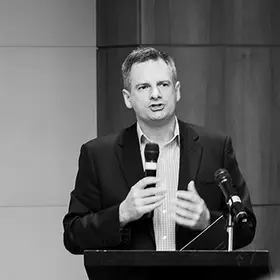The convergence of a number of unprecedented trends is radically changing the global higher education land-scape. New pressures are facing universities and their competitiveness, course delivery and reputations are being realigned, says Dr. Rohan Carr, Melbourne-based Higher Education practice leader for Kestria (formerly IRC Global Executive Search Partners).
“Higher education is going through a revolution,” Dr. Carr says. “The rules of the game are changing fast, and the new priorities we’re seeing are having an incredible impact on how universities around the world fund operations, leverage technology, recruit talent and prepare graduates for the new realities of the 21st Century workplace,” he adds.

Today, the dynamics of the global higher education market have become intensely competitive. Universities are grappling with reduced government funding for teaching and research. New digital competitors are radically redrawing how of knowledge is transferred to emerging middle classes around the world. And global economies are creating new job functions and careers while abandoning others at a faster rate than ever before.
Higher education on a global scale is being redefined, Dr. Carr asserts, by the emergence of five distinct forces that are already becoming long-term drivers of success and sustainability for public and private universities alike. These are:
Five Emerging Trends Revolutionizing Global Higher Education
- The reduced willingness of western governments to fund higher education at the levels they once did and the necessity for universities to seek new, alternative sources of income
- The growth of the middle classes in countries including China, the Middle East, India, Indonesia and the high value their populations place on a western higher education
- The revolutionary expansion of digital education and the disruptive technologies and knowledge-delivery models that now compete for students with traditional university systems
- The competitive pressures universities face related to research, teaching, quality and rankings and the drive to seize new opportunities in each of these areas
- With the “career for life” model a vestige of the past, universities are having to recalibrate the transfer of knowledge and skills today’s employers will find relevant and sustainable given their global business models and the objectives they need to realize through people
Source: Kestria (formerly IRC Global Executive Search Partners) – www.ircsearchpartners.com
New Markets, Fundraising and Emerging Technology
One global demographic trend already reshaping global higher education is the growth of the middle classes in Asia and the Middle East and their desire to invest in education to sustain rising standards of living. The sheer magnitude of these emerging higher education markets has escalated the competition to reach them. Dr. Carr observes, “The importance of education within Asian countries cannot be underestimated. Parents are much more focused on it than in the west.”
While this provides opportunities for western universities to earn revenue, this is only of potential short term benefit until developing countries can grow their own local institutions. Furthermore such incomes can be highly volatile as countries like Australia have already experienced.
Reduced government funding of universities globally is forcing universities to focus on growing their endowments and operating themselves in a much more commercial way.
Public universities in the United States, for example, have seen a reduction in government support of between 15% and 35% over the past 25 years. The U.S. is not alone. In the United Kingdom, established universities such as the University of Cambridge and University of Manchester are issuing bonds to fund capital expenditure and to compensate for reduced government support.
“There is a massive amount of change underway, and in 2014, universities don’t quite know what that means yet,” Dr. Carr shares. “These are the sorts of challenges university leaders are having to deal with.”
With reduced funding from the state, universities are increasingly reliant on philanthropic donors to support both infrastructure developments and operations.
The University of Pennsylvania recently completed a five-year fundraising campaign generating more than $4.5 billion, however, few universities have this capacity, and in many countries, such a culture of philanthropy is underdeveloped.

Online education is rapidly revolutionizing the delivery of knowledge. Some universities now have more students enrolled in online programs than matriculate on campus. Yet digitised education is still in its early days, Dr. Carr opines. It is the subject of significant ‘experimentation’ as institutions consider the effect on their brands and how to utilise new mechanisms while at the same time not reducing the benefits of the traditional college experience.
Massive Open Online Courses, or ‘MOOCs’ are a significant disruptive force impacting already on the sector. An increasingly credible form of education, MOOCS enable broad participation and open access via the web. They are known increasingly for their interactive user forums that help foster communities of students, teachers and researchers. Organisations such as Coursera, an education platform that also offers free online courses, are entering the market in some cases as a partner to traditional universities and, in other cases, as a direct competitor.
“Now I can go on the Internet and do a philosophy course taught by a Professor from Harvard. I can access it anywhere in the world, and in some cases, it’s free,” Dr. Carr points out. In some countries, governments are actively encouraging these and other ‘for profit’ education enterprises, many of which are expanding into the more traditional space.
Connecting Higher Education with a Rapidly Evolving Workforce
One of the biggest challenges moving forward, Dr. Carr explains, is aligning university education with corporate human capital needs.
For the past few decades, one of the roles of universities was to produce graduates ‘work ready’ and who immediately entered a profession or industry, embarking on a lifelong career. Two things have changed to challenge this. First, there are now fewer lifelong careers and thus it will be necessary for universities to look at how they educate people over their entire working lives rather than just at the start. Second, universities are having difficulty keeping up to date with rapid developments in the workplace and the changing nature of skills required by global industries.
“There is no more career roadmap,” Dr. Carr says. “Many jobs we have today didn’t exist ten or 20 years ago, and because so many other jobs will disappear in the future, people who had those jobs will have to do new things. How will universities adapt?”
This may foreshadow a shift from universities teaching younger people to teaching more mature second or third career employees. Will this perhaps lead to the growth of more nimble, private academic offerings that can adapt more quickly than traditional institutions? The big unanswered questions also include: “Who will pay to retrain knowledge workers as employers identify new areas of expertise needed to do a job?”
The Search for University Talent
Another area that reveals growing competition within global higher education is in the search for the best and brightest candidates to fill key teaching, research and leadership roles. Higher education is being driven increas-ingly by demand-side dynamics that have long characterized the tug of war for talent in corporate circles.
“The reason our executive search services are being used more and more is because higher education has be-come an intensely competitive global industry,” Dr. Carr says. “The way universities advance is by moving up the global rankings. The way you achieve that is by increasing your research outputs. The way you boost your re-search is to add exceptional talent.”
Just 20 years ago, executive search in academia was largely limited to assignments to find Presidents and Vice Chancellors. Even just five to ten years ago, Dr. Carr observes, the search for non-academic leaders in global higher education was confined to a single talent pool – that is, experienced administrators with long careers within established, brick-and-mortar institutions.

Fast-forward to today, where search has become an integral channel to source talent not only for leadership and administrative posts, but senior and specialist academic talent as well. Just consider one recent search for a senior Professor of Natural Resources Economics with a focus on fisheries. “There’s probably only a dozen peo-ple who can do that job globally,” Dr. Carr observes, so one can appreciate just how difficult it would be for uni-versities to find a satisfactory solution from advertising the job vacancy.
“These days, the race is on to attract the best and brightest from within academia as well as outside to manage the complex operations of universities,” Dr. Carr says. Today, the typical candidate short-list in key roles includes leaders from nearly every continent.
“Search in higher education today is increasingly focused on capability, vision and ideas rather than just experi-ence,” Dr. Carr adds. “It’s also about whether the person is going to fit. It’s no longer just about being a great academic but can you motivate your colleagues, work as part of a team and increasingly manage people and resources in line with the institution’s goals.”
The demands on higher education around the world are shifting, so the experience, credentials and talent re-quired to meet those demands is changing accordingly. “Human capital management has really become demand-driven,” Dr. Carr shares. “There are new challenges, new pressures and new opportunities at hand across the higher education space, so it’s no surprise that institutions would put more emphasis on finding the right people to face them.”
About Dr. Rohan Carr

With over 15 years in the executive search industry, Dr. Rohan Carr consults to many of Australia’s leading universities, research organisations and education industry organisations. His work spans both the public and private sectors and across academic, research and administrative activities.
Dr. Carr holds a Bachelor of Commerce from the University of Melbourne and an MBA from Monash University. He also has a Graduate Diploma in Applied Finance and Investment from the Financial Services Institute of Australasia. Additionally, he completed his Doctorate in Business Administration at RMIT University in 2005.
He is also a member of various boards and advisory committees of private companies, not-for-profit organisations and educational institutions. Dr. Carr is a member of the Kestria Executive Board and also heads the Kestria Education Practice globally.
He can be reached by telephone in Melbourne, Australia at +61 03 9654 3288 and by email at [email protected].
About Kestria (formerly IRC Global Executive Search Partners)
Kestria (formerly IRC Global Executive Search Partners) is a market leader in the global executive search industry with a track record of more than 30,000 completed search assignments for more than 2,000 clients across industry segments and executive management functions. Our clients range from large multinationals to middle market companies that enjoy the advantage of working with leading local firms around the globe, providing them access to expert local market knowledge, the agility and commitment of owner-operated firms, and the global reach of a strong alliance.
With a growing roster of leading executive search firms across EMEA, the Americas, Africa, Asia and Australia, Kestria (formerly IRC Global Executive Search Partners) has more than 300 accomplished executive search professionals working on six continents, and in more than 40 countries. Ranked among the world's ten largest retained search firms, Kestria (formerly IRC Global Executive Search Partners) has provided consistent and high-performance executive search solutions to its clients for the past twenty years.


